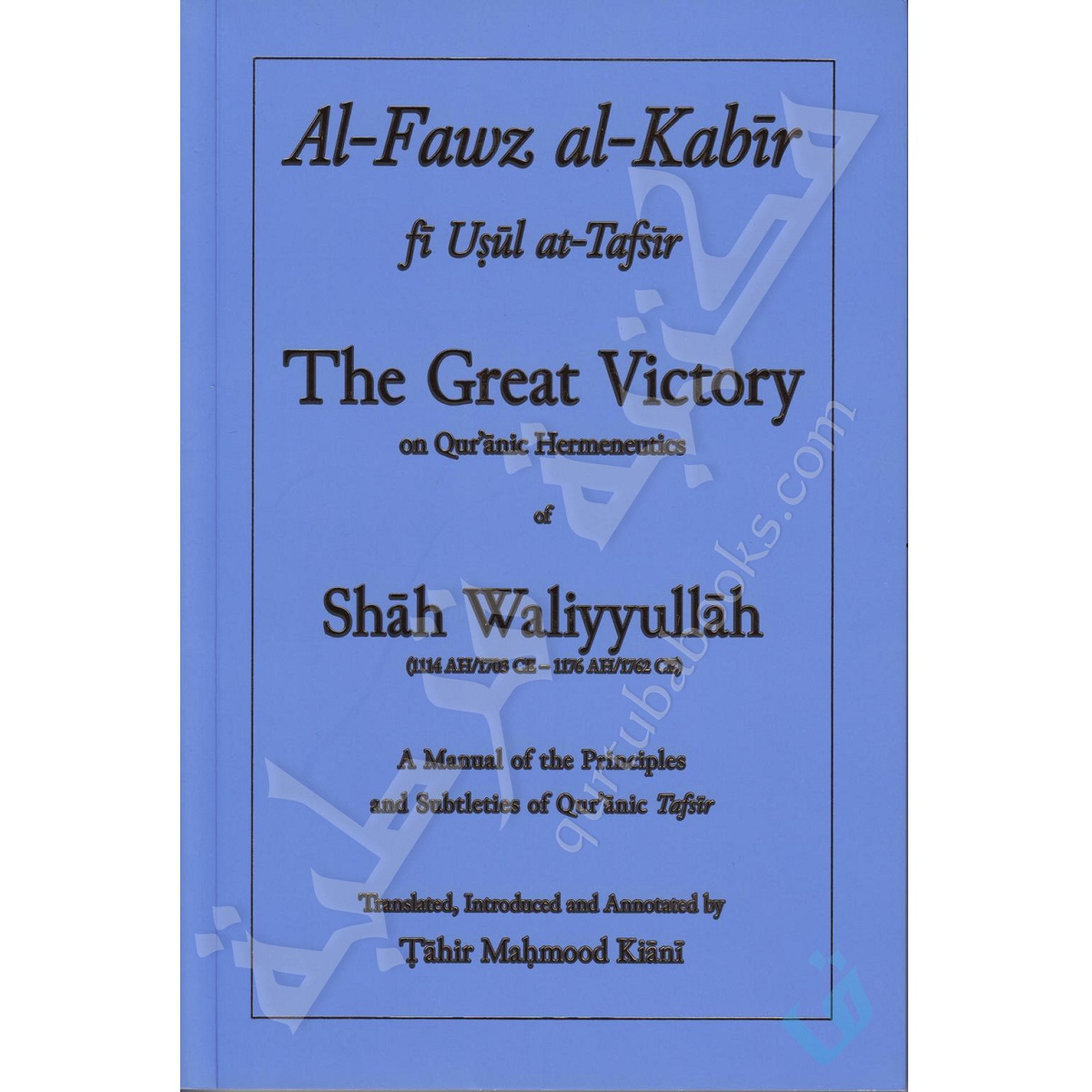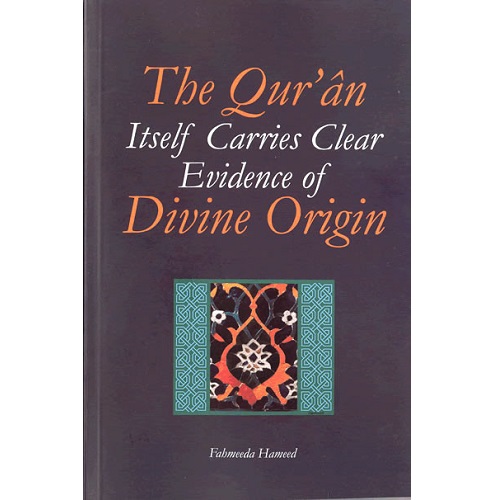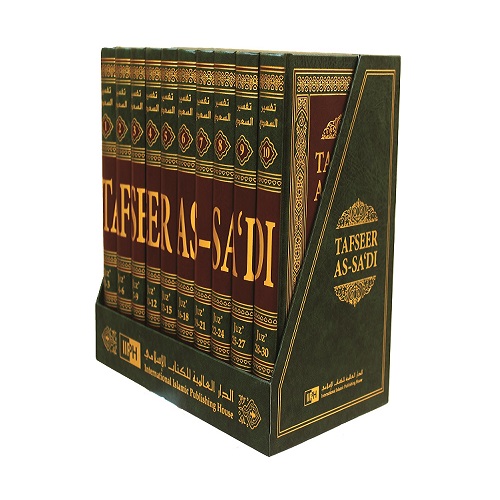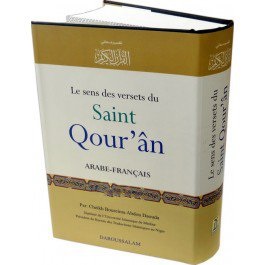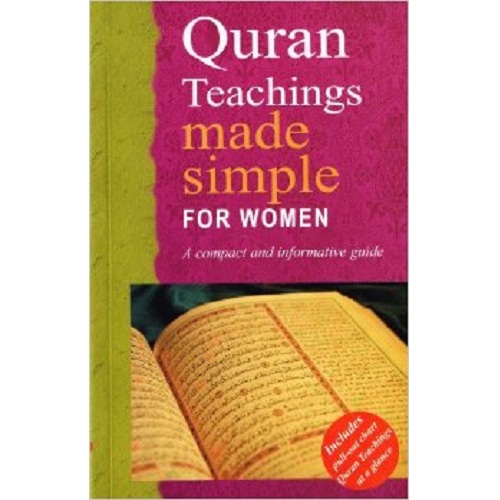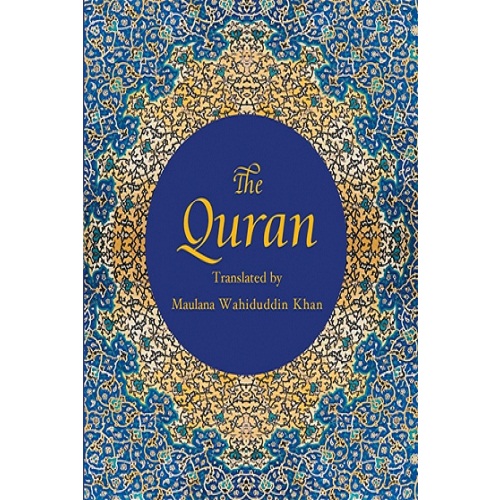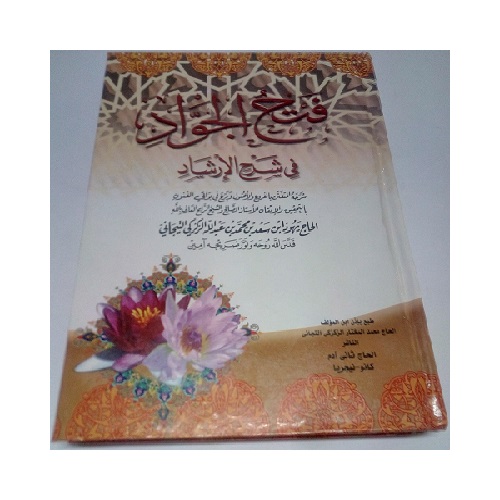Description
Description:
Al Fawz Al Kabir Fi Usul At Tafsir The Great Victory Al-Fawz al-Kabīr fī Uṣūl at-Tafsīr – “The Great Victory, on Qur’ānic Hermeneutics” is a manual of the principles and subtleties of Qur’ānic tafsīr. In it the author outlines the five fundamental sciences that the Qur’ān contains: the science of judgements (aḥkām), reminding others of the Favours of Allah, the Days of Allah and the Life after Death, and giving particular attention to the science of polemics.
He also reviews the other sciences of tafsīr such as the circumstances of revelation (asbāb an-nuzūl), abrogating and abrogated āyāt (an-nāsikh wa’l-mansūkh) and the unusual words and phrases of the Qur’ān (gharā’ib al-Qur’ān), before concluding the book by looking at the extraordinary and miraculous aspects of the Noble Book, and a final chapter on the meanings of the letters of the Arabic alphabet. SHĀH WALIYYULLĀH Shāh Waliyyullāh was born on 4th Shawwāl 1114 AH/10th February 1703 CE in northern India. He was descended from ‘Umar ibn al – Khaṭṭāb and was thus Qurayshī.
He had a traditional education in all the classical sciences from his father and other scholars in India before journeying to Makkah from where he returned in 1145 AH/1733 CE with great knowledge of all the major works of ḥadīth. He dedicated the rest of his life to teaching in the Madrasah Raḥīmiyyah and to writing widely on all the known Islamic sciences as well as working indefatigably for the reform of Indian society and the renewal of the dīn. He died in 1176 AH/1762 CE.
Author:Shah Waliyyullah
Binding:Softcover
Pages:259
Size:8.3 X 11.7 Inches
Publication Year:2014

